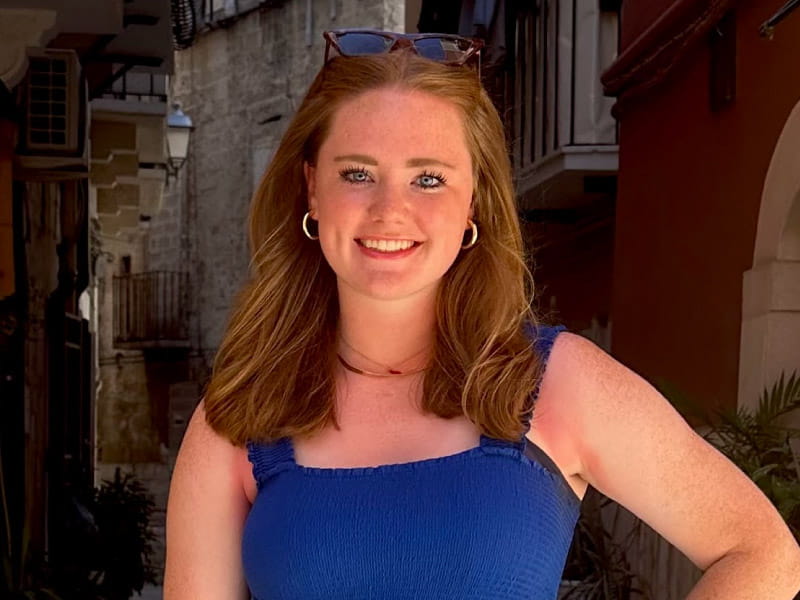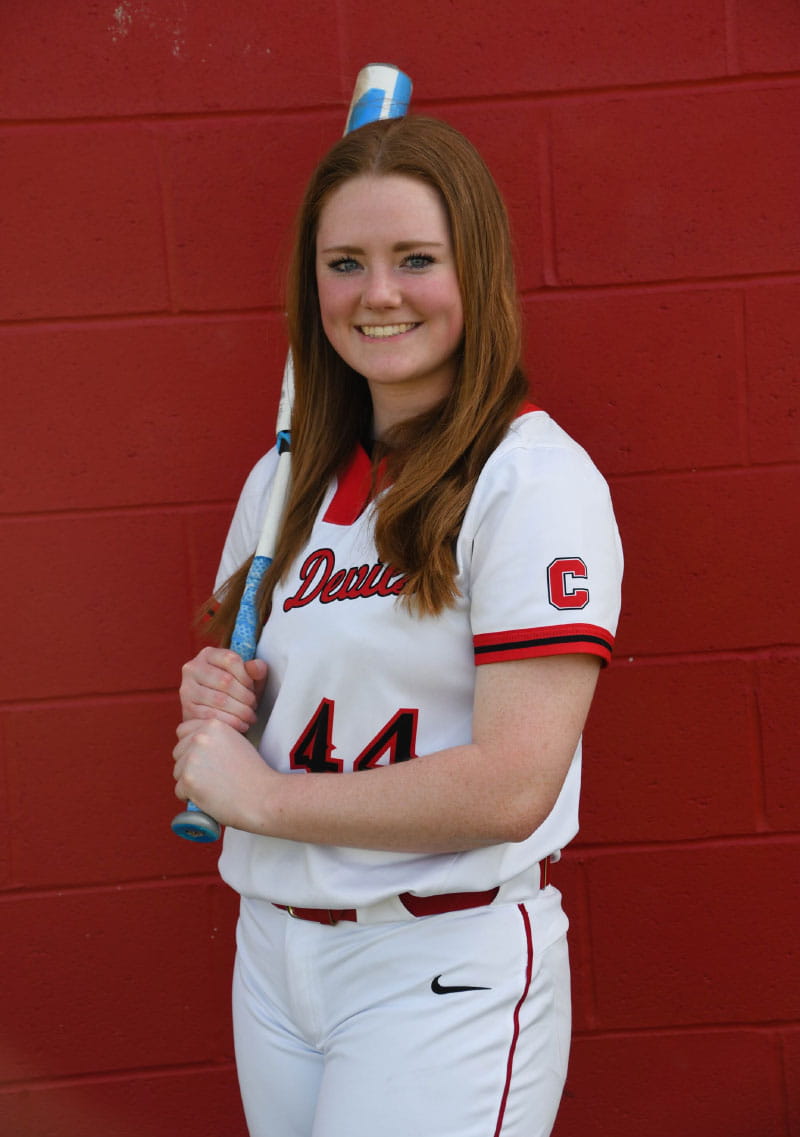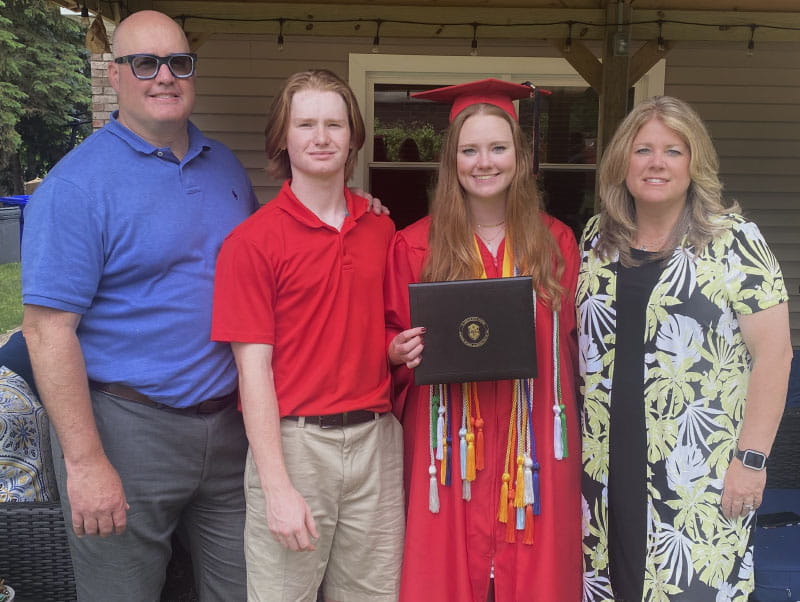Teen's face went numb at the start of a calculus exam. Another migraine? No. A stroke.
By Lindsey Giardino, American Heart Association News

It was midterm week at Clarence High School in New York and senior Maddy Ferriter was ready.
At 9 a.m., she took her seat in the lecture hall for her AP calculus exam. She turned behind her to chat with a friend about the Buffalo Bills football game the night before. She turned back to the front of the room when the teacher announced it was time to pass out the exams.
In that instant, the entire left side of her body went numb.
"I can't feel my face," she whispered to a friend next to her. Her friend couldn't understand.
Ferriter was sitting in the front row, so she gestured the teacher over.
"I need help," she said. "I can't feel my body."
The teacher helped Ferriter into the hallway. She sat down and tried to process what was happening.
"Can I really not feel this side of my body?" she thought. "Is this just stress over the big exam?"
The school nurse arrived.
"What's your name?" she asked Ferriter. "What time is it? Where are you?"
Ferriter answered everything correctly. The nurse called Maddy's parents, John and Kim Ferriter, to let them know what was going on.
John arrived about 10 minutes later. Maddy still couldn't move her left side.
Because Maddy had a history of migraines that caused numbness and tingling in her extremities, they figured she was suffering from one. John called her neurologist and was told to bring her in. An hour later, she had an MRI.
It revealed that Maddy was having a stroke.
By the time she reached the hospital, too much time had passed since the onset of her symptoms for her to receive clot-busting medication. John, a former MRI technician, blamed himself for not having considered stroke as a possibility and getting her to the hospital instead of the neurologist.
Maddy's youth and overall health helped speed her recovery. The numbness lingered for a few days, but no other symptoms appeared evident.
Her biggest fear was how the stroke might impact her immediate plans – like going to prom and playing her final season of varsity softball and walking across the stage at commencement.
"What's the earliest I can be back in school?" she would ask her doctors. "Softball starts in two months. There's no way I'm missing it."
She was back in school the following week.
Shortly before her stroke, Maddy had received a new electric guitar. It turned out to be just what she needed for physical therapy, especially since the tingling in her fingers was the last to leave.
"She worked her tail off to recover – to train her brain to communicate with the fingers again – because that's who she is," John said.
Tests done at the hospital revealed that Maddy's stroke likely stemmed from a previously undiagnosed heart defect she'd had since birth: a hole in her heart that didn't close on its own called a patent foramen ovale.
Before the softball season, Maddy underwent a procedure to close the hole. Within a week, she was back on the ball field.

Two years later, Maddy is a sophomore at the University of Buffalo, pursuing a career in biomedical engineering, a decision she reaffirmed after undergoing numerous tests and imaging.
"Seeing what was possible was eye-opening. Like, holy cow, medicine and engineering have come such a long way and are going to go even farther," Maddy said. "It got me excited to start college and see what I can do to impact this world in terms of medical devices and medical engineering."
Maddy is also passionate about spreading awareness that strokes can happen at any age, a desire that became especially strong in the hospital as she began to grasp that she was having a stroke.
"This isn't supposed to happen to 18-year-olds," she recalls telling her parents. "We've got to let more people know about this."
Her dad had gently responded, "I don't disagree with you, but let's get you healthy first, kid. Then we can work on the awareness part."

Stories From the Heart chronicles the inspiring journeys of heart disease and stroke survivors, caregivers and advocates.





